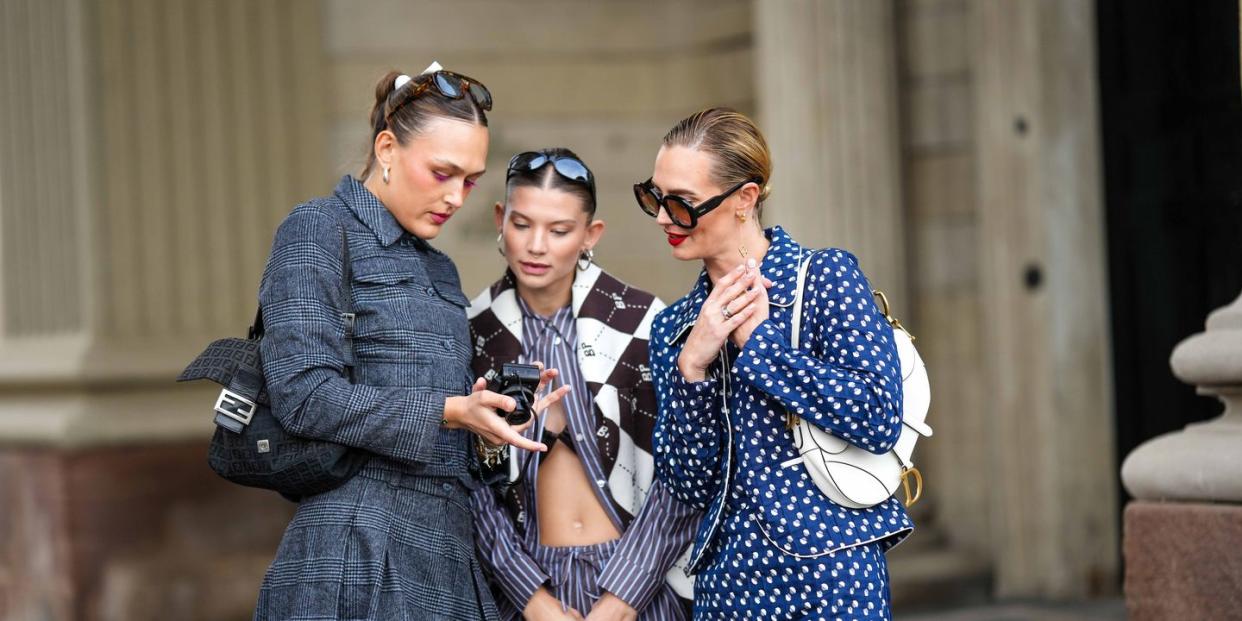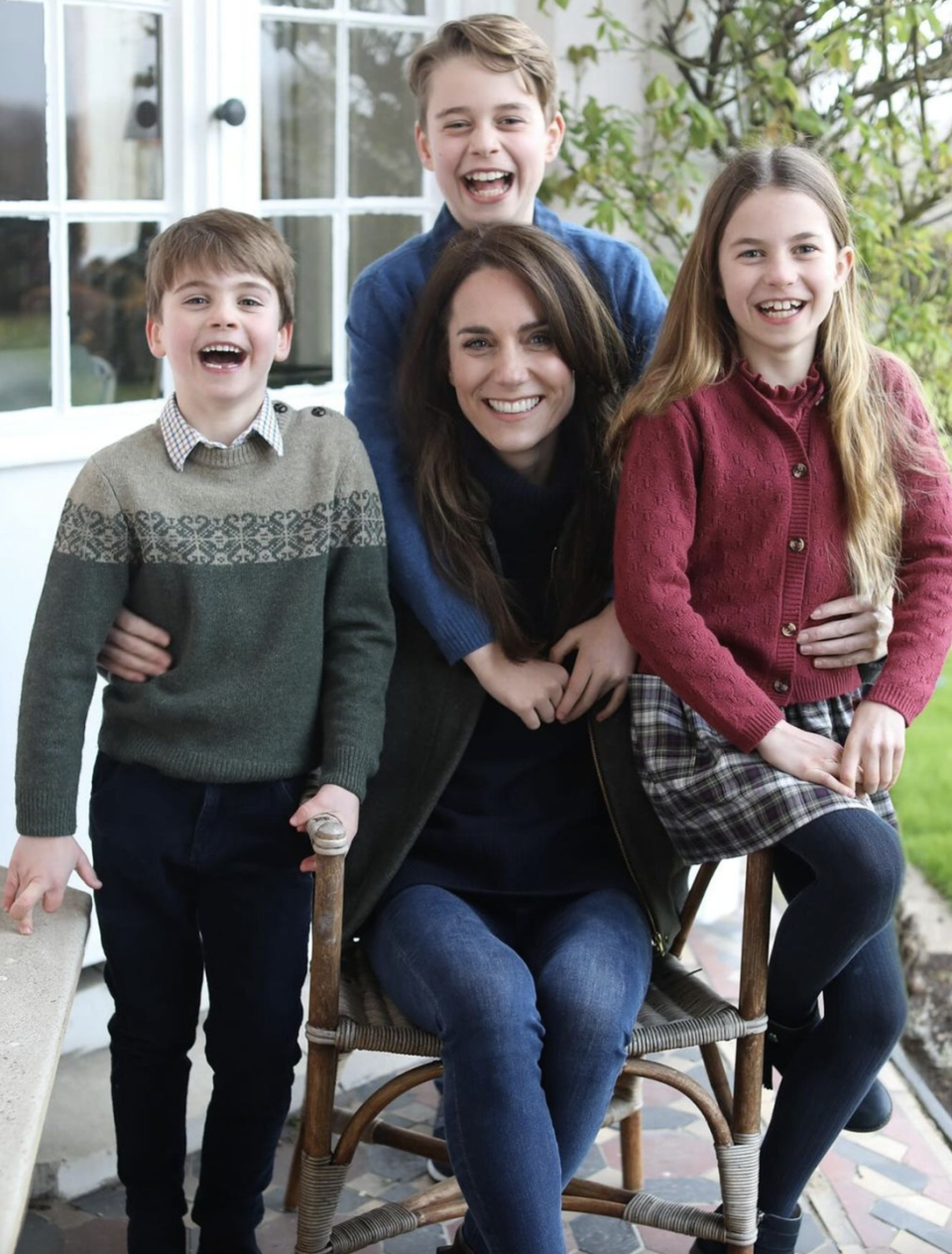Are We All Living In 'Conspiracyland'?

Picture an inverted triangle. It is split into tiers, coloured like a rainbow, and titled ‘The Conspiracy Chart’. The bottom tier, at the point of the triangle, is titled ‘Things that actually happened’. Big Tobacco lied about cancer. Britney Spears pushed for years to end her conservatorship. In the 1950s, the CIA bought the world’s entire supply of LSD to use as a tool for mind control. True, true, true. As we travel up the triangle, we pass through three more tiers, from, ‘We have questions’, which includes things like details about Jeffrey Epstein’s death and the existence of UFOs, through to ‘Unequivocally false but mostly harmless’ (Alien abductions! Elvis lives!) and then ‘Dangerous to yourself and others’ (vaccines contain microchips, global warming is a hoax, Covid is a bioweapon), until we pass what its creator, disinformation expert Abbie Richards, calls, rather doomily, ‘The point of no return’.
At the top, detached from reality, is the widest tier, titled, ‘World ruled by supreme shadow elite, promotes hatred and violence towards marginalised groups’. This is the place of Holocaust denial, QAnon and Hollywood turning your kids gay. What this triangle does is calmly expand on the conspiracy theories that continue to shape our world. It acknowledges that when the people in power abuse said power, they fuel anxieties that prompt conspiracy theories. This creates the kind of instability that leads to all of us being susceptible to disinformation – and that includes you. We are living in an age of fake news.
FIND OUT MORE ON ELLE COLLECTIVE
Marianna Spring, the BBC’s first-ever disinformation and social-media correspondent, calls it ‘Conspiracyland’, a place with its own rules and language. A place with ‘crisis actors’ and hoaxes. ‘Democracy relies on a concept of a shared reality,’ she says. ‘But once that is eroded and people no longer trust in anything, we become vulnerable to conspiracy-theory thinking. It poses a real threat to social cohesion.’
During the pandemic, researchers linked Covid-related anxiety and depression to an increased likelihood of believing conspiracy theories. A 2023 survey found almost a quarter of the UK thinks Covid-19 was a hoax, around a third feels that the cost-of-living crisis is a government plot to control the public, and similar numbers think the ‘great replacement theory’ – the idea that white people are being replaced by non-white immigrants – is underway right now. What used to be seen as paranoia now blurs with beliefs held by millions, and some politicians weaponise the confusion, destabilising the conversation. This is where we are – conspiracy theories have affected public and personal health, split families and inspired murders, bombings and an insurrection.
When Spring began to report on conspiracy theories, two things surprised her. The first was how lucrative conspiracies can be, with committed followers donating millions to influencers. Within 10 years, instead of aiming to be teachers or doctors, Spring predicts children will aspire to be conspiracy theorists: ‘It has become a viable job alternative.’ The second thing was how different ‘true believers’ are to their stereotypes. ‘There’s this misconception that people who believe conspiracy theories are stupid or mad in some way, when actually a lot of the people I find who fall into this category are very curious, very engaged. They’re not gullible. Rather, they’re cynical.’ Conspiracy theories offer them a sense of meaning and purpose and agency that they are otherwise lacking, which is one reason why it’s so hard to escape Conspiracyland. Says Spring: ‘I think we should view those people as victims, rather than simply the bad guys.’
In 2021, I spoke to a woman called Melissa Rein Lively, whose viral video, where she had torn face masks from the racks of her local Target, had led to her being nicknamed ‘QAnon Karen’. And her story of how she had got there, to Target, via a lockdown, mental breakdown and QAnon, was strangely moving. It turned out to be a story of ‘conspirituality’: the intersection of wellness pseudoscience and conspiracy theories,
where the former offers a gateway into the latter. For Rein Lively, a devotee of yoga and spirituality, the wellness industry’s distrust of institutions had eased her into a place where she realised nothing was as it seemed. It was, she told me, ‘oddly comforting’. After months of chaos and trauma it was a relief, she thought, to finally see ‘the truth’.

I thought of Rein Lively earlier this year when ‘normal people’, people like us, speculated wildly about the Duchess of Cambridge, while sharing rumours, scrutinising photographs and looking for the truth. It seemed to be a women’s quest, this one. But, apart from a 2020 study that found women were significantly less likely than men to endorse Covid theories, research has rarely found a consistent link between gender and conspiracy-theory beliefs. In this case, the more of us who believed we were being lied to, the more the lies seemed likely, especially in the context of the Royal Family, a symbol of power and of vast economic inequality. As the triangle taught us, conspiracy theories often develop out of real problems and anxieties. ‘We often assume that only those who are paranoid about the fringes of society believe in conspiracy theories,’ says Dr Daniel Jolley, an expert in the social and psychological consequences of conspiracy theories. ‘However, they are particularly persuasive in many different communities.’
Conspiracy beliefs can result from a range of frustrated needs, but he is interested in how those needs are frustrated. A societal crisis, such as inflation, can fuel beliefs that those in power are deliberately impoverishing certain sections of society. ‘But also, they could be frustrated by one’s experience in the world. We know that people who report being discriminated against, or being bullied, report higher belief in conspiracy theories,’ says Jolley.
A month before the Royal conspiracy theory played out in the UK, the American right wing was speculating that Taylor Swift was involved in a plan to rig the Super Bowl in order to deliver the presidential election to Joe Biden. From here, it seems clear that conservatives were aggrieved about how Swift represented all they considered depraved about liberal America, and therefore felt she had to be involved in propaganda. Conspiracy theories like this are appealing, says Jolley, because they promise to satisfy various psychological needs. ‘We all desire to feel in control and secure, and maintain a positive view of ourselves and our social group,’ he says. ‘But, a moment of crisis – such as rapid political change – can frustrate this psychological desire and make us feel powerless and uncertain.’

A conspiracy theory can explain this crisis simply: the problem is the fault of a group of sinister people misusing their power. ‘It is thought that such a belief would, therefore, make us feel better and have a sense of understanding of the crisis,’ says Jolley, but research has found that while they are appealing, conspiracy theories are ultimately unsatisfying. ‘They can make us feel more anxious, as the world is perceived as full of conspiracies,’ he notes. And on it goes.
With #whereiskate, there was the excitement and entertainment of wanting to solve a mystery. True-crime fans have been berated (and sometimes arrested) by police for sharing conspiracy theories online – speculation and misinformation can damage the outcome of investigations and cause unnecessary fear. But it’s not just individuals, triggered by anxiety and anonymity, who are to blame. As social media increasingly acts as the main source of news for many people, shaping the way they understand politics and the world, algorithms favour topics like these – meaning more of that divisive, itchy content is shown to users. And the popularity of these posts incentivises their creators to make more, so videos and theories multiply. Monetisation drives this age of disinformation. Changes to the verification rules on Elon Musk’s X mean that, today, millions of us are fed unsubstantiated theories daily from users ‘just asking questions’. And so, wrote Nesrine Malik in The Guardian, ‘the tone of conspiracy has become gentrified’.
There are ways to fix the disinformation problem, such as regulating the social networks. ‘And, fundamentally, holding to account the social-media companies,’ adds Spring, be that through policy or pursuing legal cases involving defamation or harassment. ‘Increasingly, we have to view social-media companies like governments,’ she argues, and insist on far greater transparency. And, as well as educating children about disinformation and
things like AI-generated content, we must continue to educate ourselves. ‘We need to understand more about the broader consequences of conspiracy theories,’ says Jolley, such as how a conspiracy belief may affect things like jury decision-making. ‘It is also paramount for us to develop interventions that can help alleviate some of the negative consequences of disinformation and conspiracy theories.’ Researchers are working on this, he promises.
Other measures may feel trickier, as they require empathy – like learning to talk to family members who believe in conspiracy theories. But the more I learn about this age of conspiracy, the more I feel there is a bigger conversation to be had about the kind of societies, the kind of worlds we want to live in. We are all affected by the repercussions of powerful people making self-serving decisions, of corporations obfuscating the truth – and we can all sometimes feel unable to control our own lives. If politicians and those with power took steps to give people some security, rather than stoke divisions and trade in anxiety, perhaps our current thirst for conspiracy theories might pass. ‘We’re still quite far from some sort of golden solution,’ says Spring, with a kind of weary optimism, ‘but more than ever before, people are aware of the consequences. And they aren’t willing to
stay quiet anymore.’
Among the Trolls: My Journey Through Conspiracyland by Marianna Spring is out now.
ELLE Collective is a new community of fashion, beauty and culture lovers. For access to exclusive content, events, inspiring advice from our Editors and industry experts, as well the opportunity to meet designers, thought-leaders and stylists, become a member today HERE.
You Might Also Like


